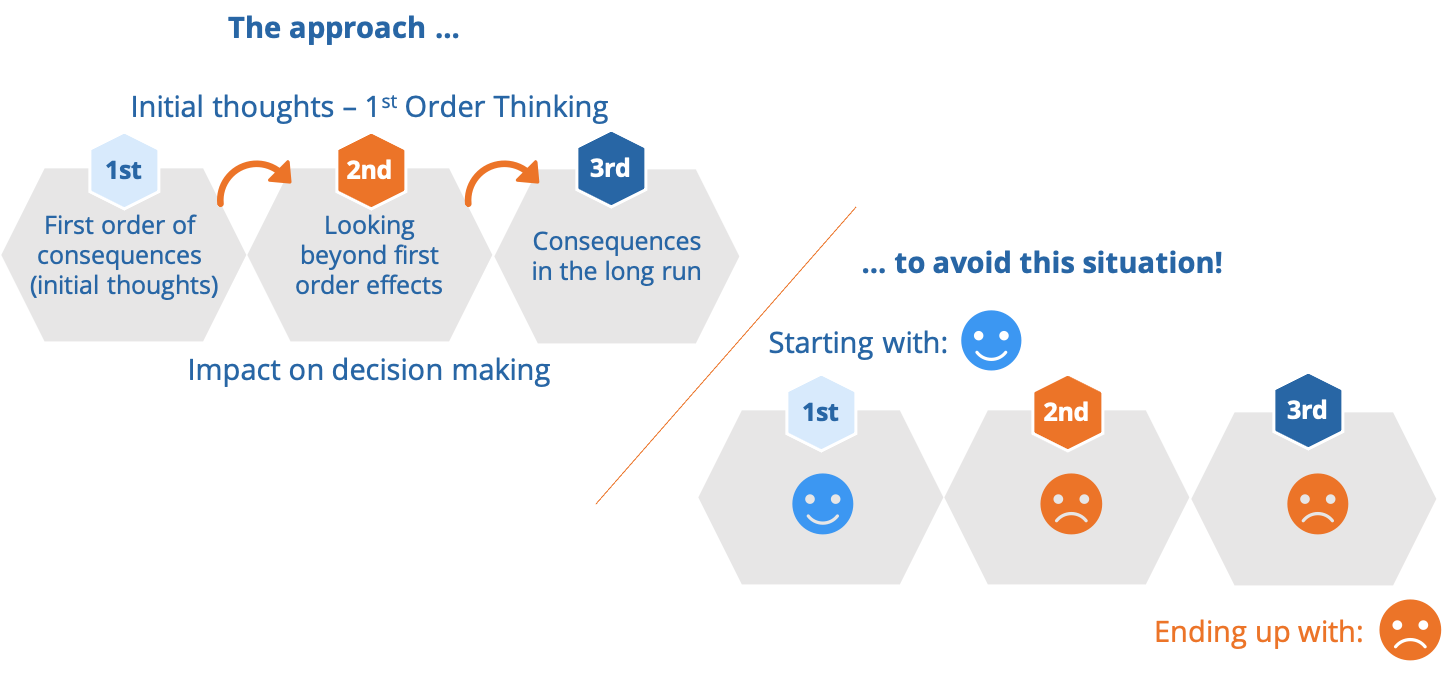
Approach to second-order thinking / second-level thinking
Approach second-order thinking / second-level thinking
- First, write down the decision you would make initially. This makes it clear to everyone involved what the starting point is.
- You then determine the immediate implications of that decision. This is also called First Order Thinking.
- With each impact, ask yourself, “And then what follows?”. This is the key question to achieve second order thinking.
- Finally, outline the long-term consequences of the planned decision. In principle, you ask yourself the question “And what are the consequences in the long term?”. This question is also part of second-order thinking.
- Finally, taking into account the medium and long-term consequences, you make the final and, if necessary, adjusted decision.
Description of second-order thinking / second-level thinking
Alternatively, second-order thinking is also referred to as second-level thinking, a German term is not usually used for it. It’s a good way to consider the long-term consequences of your actions before you actually make a decision. Decisions are usually quick and easy to make when it comes to short-term results. In doing so, they only solve the immediate problem without considering the consequences and without supporting sustainable action. Second-order thinking, on the other hand, looks at the medium to long-term consequences and reactions of those involved by always aiming at the question “And what then?”.
This method was developed by Shane Parrish.
Thematic classification
Second-order thinking / second-level thinking is a methodology for making decisions with a long-term perspective.
Who benefits from this method?
- Management
- Entrepreneurs
- Teams and employees
Limits of Application
The second order thinking method requires more time than just making spontaneous decisions. It also takes courage and the willingness to deal with the long-term effects of your actions. Managers who want to make long-term decisions should be aware of the economic and political pressure that often occurs, which in many cases forces short-term decisions.

